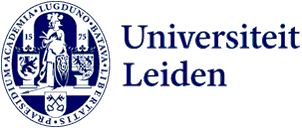
ESOF session on vaccines: ‘Infectious diseases know no borders’
How can Europe lead the way in vaccine development that is fast and for all? To answer this pressing question, Professor of Vaccinology Meta Roestenberg is holding a panel session on 14 July at the EuroScience Open Forum in Leiden.
‘The problem is that few investors are interested in developing vaccines for poverty-related diseases.’
What angle are you taking in the session?
‘The session is about how we can develop vaccines that reach everyone and what the roles are in this. Pharmacists make vaccines and countries buy them, but this doesn’t always work very well. Take the covid pandemic. We can see a very low vaccination rate in low-income countries. In these countries, we also see various poverty-related diseases for which there are no or not enough vaccines, for instance against malaria or worm infections such as bilharzia.’
Why is this?
‘The problem is that few investors are interested in developing vaccines for poverty-related diseases. By comparison, worldwide about four vaccines are being developed against bilharzia, a dozen against malaria and more than 200 against covid. So there are huge differences in these investments. Another factor is that it’s more difficult to produce vaccines against parasites. For malaria, there’s finally a vaccine that will be rolled out in Sub-Saharan Africa thanks to intense cooperation between public and private partners. The speakers I’ve invited represent the pharmaceutical, World Health Organization (WO) and academic research sides.’
The EuroScience Open Forum is the largest multidisciplinary science conference in Europe. The tenth edition will be held in Leiden from 13 to 16 July. ESOF2022 is about seven themes: Sustainable environment, Cultural Identities and Societal Transformation, Space for science, Healthy societies, Freedom and responsibility of science, Science and Business, and Sustainable Academic Careers. Meta Roestenberg’s session, Vaccine Development in Europe: Fast and For All is on Thursday 14 July from 15.45 to 17.00 in the Kamerlingh Onnes building.
What will be the main points of discussion?
‘The discussion will be about what did and didn’t go well in the development of this malaria vaccine and how we ensure that these kinds of vaccine continue to be developed. Rino Rappuoli is Head of Vaccine Research & Development at GlaxoSmithKline Pharmaceuticals, which developed the malaria vaccine. The second speaker works on the WHO’s malaria programme and is involved in implementing the vaccine in the field. Benjamin Pets from CureVac will also be on the panel and he will talk about what mRNA technology can mean for the quick and cheap production of vaccines. Ramon Arens from the LUMC will talk about the development of vaccines against cancer and infectious diseases.’
Who do you want to reach with this discussion at ESOF?
‘I hope that researchers from both my own and other disciplines will come to our session because we need lots of different disciplines. It’s a broad societal problem that needs to be put on the agenda. If certain diseases in Africa or Southeast Asia are not under control, they could become a problem in the rest of the world, in the Netherlands too therefore. Infectious diseases know no borders so you can’t say it’s another country’s problem. It’s also about solidarity. We should care if more than half a million children die of an infectious disease in Africa.’
Sign up for ESOF
Register nowText: Linda van Putten
